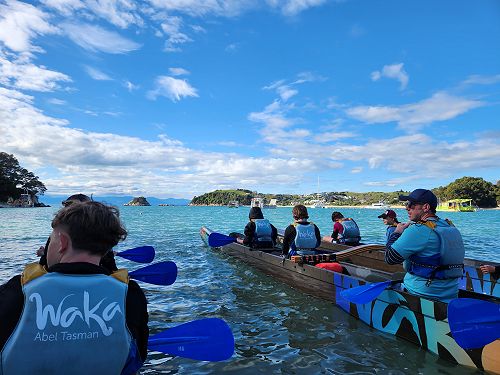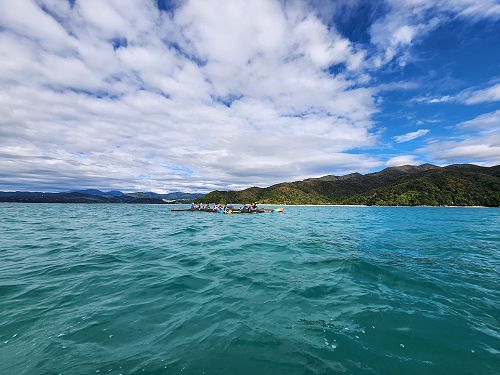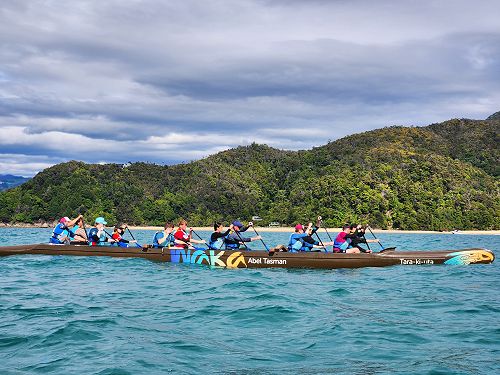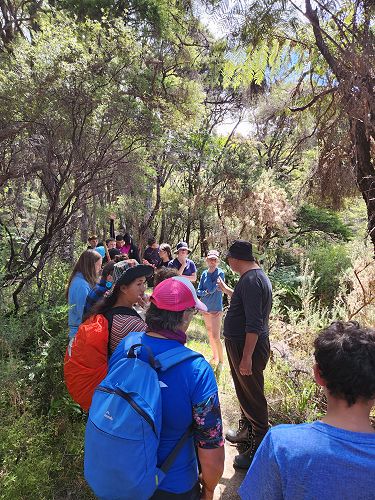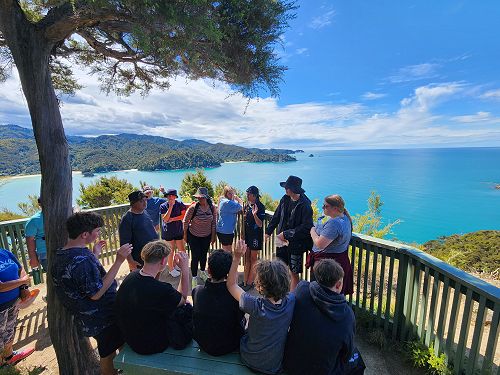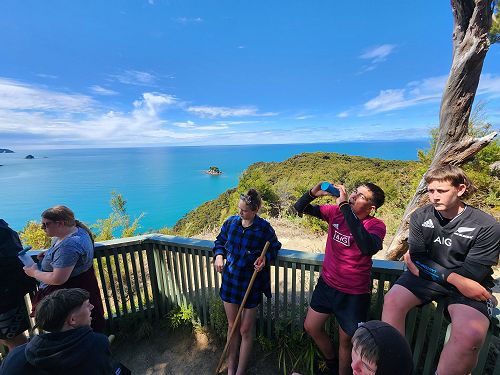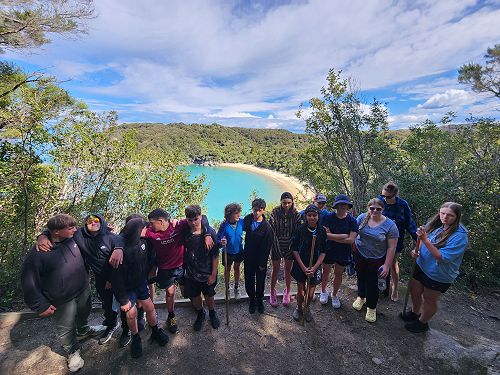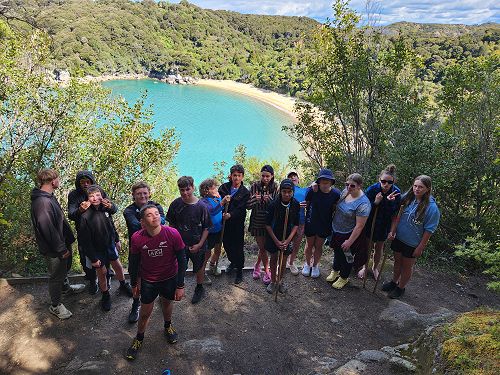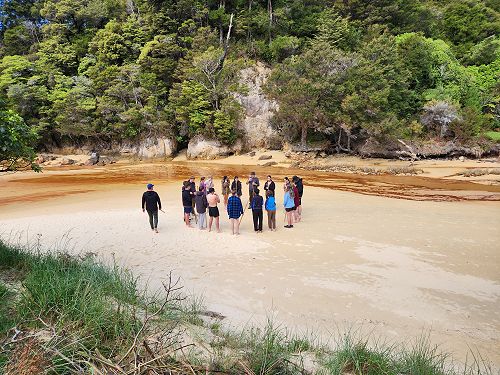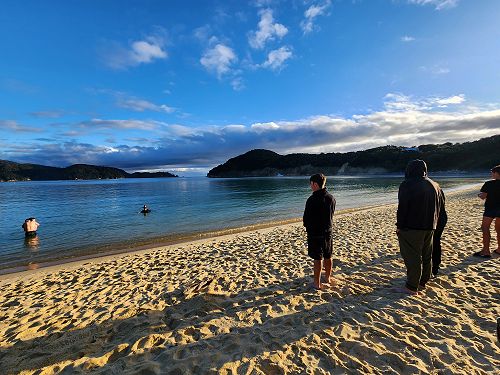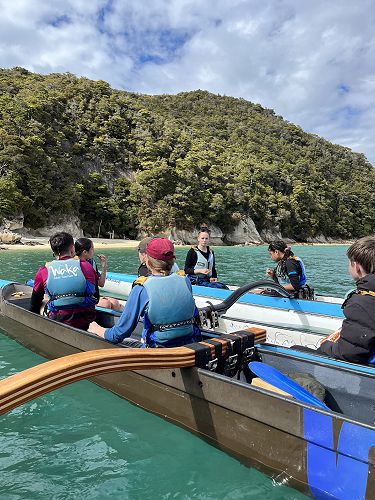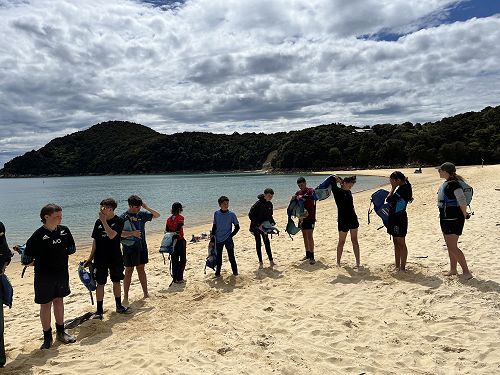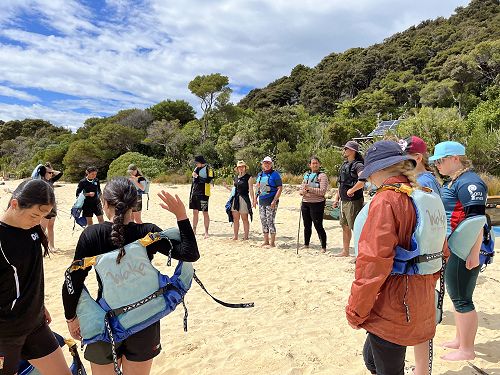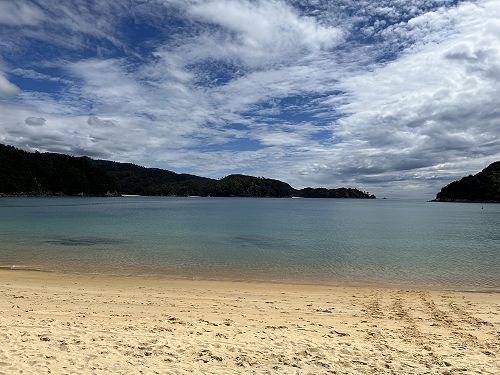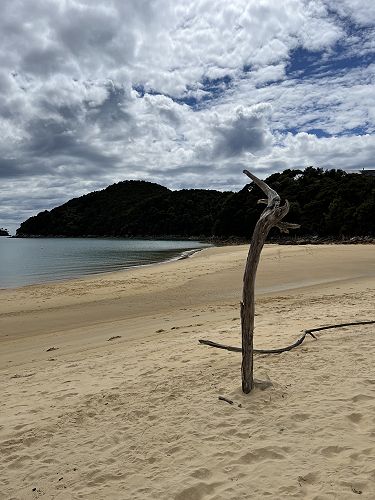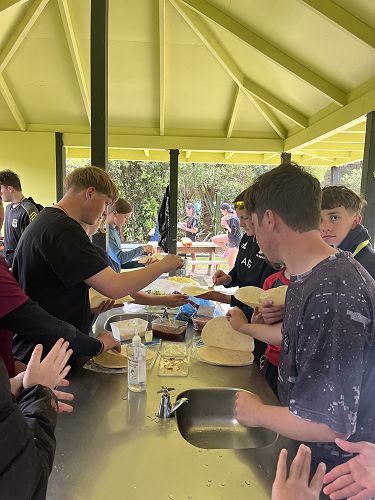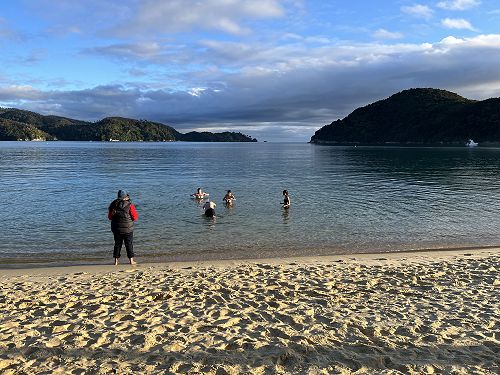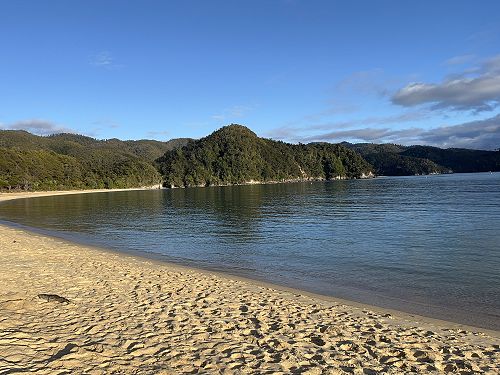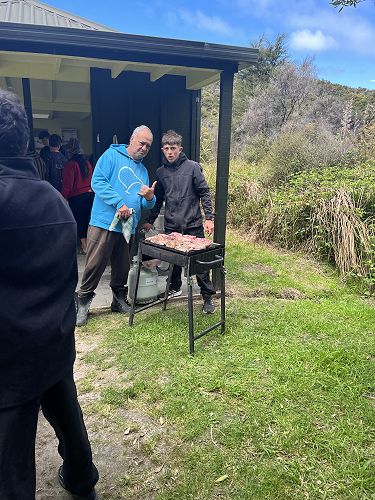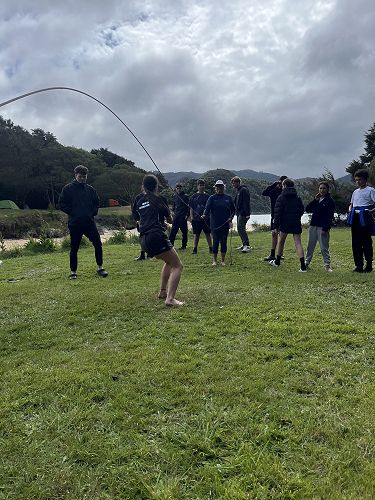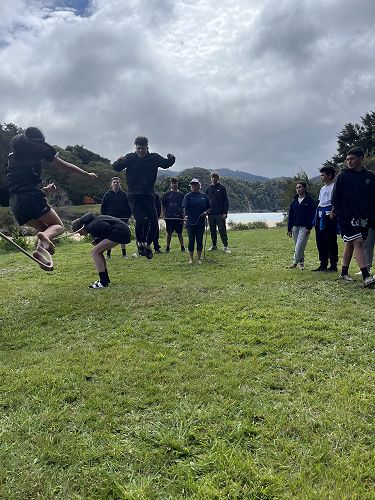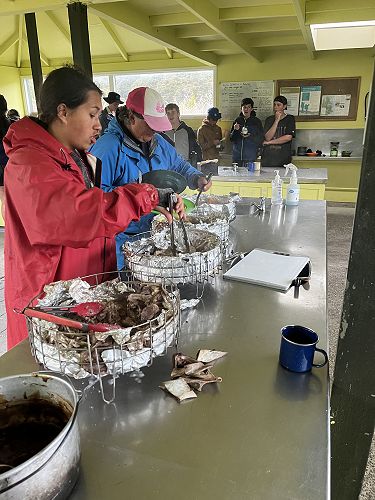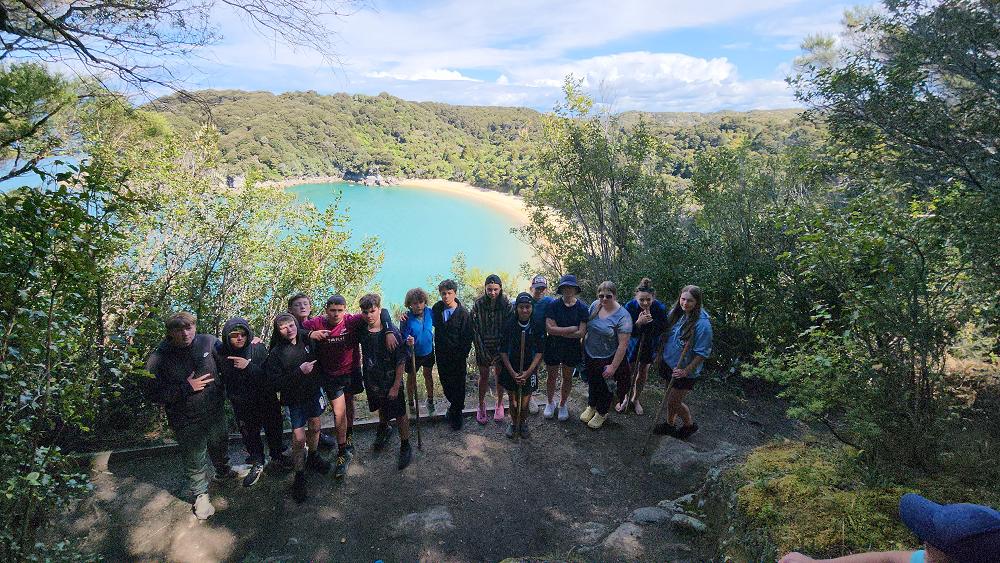
Waka Journey
During the first week of November a small number of Year 9 and 10 students adventured to Abel Tasman. An experience that built friendship, identified strengths and leadership, and has left a lasting impact on all participants. Here's how it went ...
On a wet miserable Sunday morning, a bunch of students from Years 9 and 10 slowly dribbled their way into school accompanied by a parent[s]. As it turned out, one mini-van held the Year 9s and Year 10s in the other. Our parents departed and so did we; our destination Whenua iti Outdoors, Lower Moutere.
It was a long drive, made longer by some of the music choices and the torrential rain that seemed to follow us.
When we reached Whenua Iti, the weather had lifted slightly and we were greeted by Whaea Linda
Unfortunately, the organiser of the trip had had to pull out due to Covid so both staff members were last-minute additions to the trip.
We all unpacked our bags from the vans and put them in the concrete block we would be sleeping in later on, and the instructors promptly put us to work setting up for the night. After dark, a lightning storm lit up the sky and we all reluctantly fell asleep to the sound of the heavy rain.
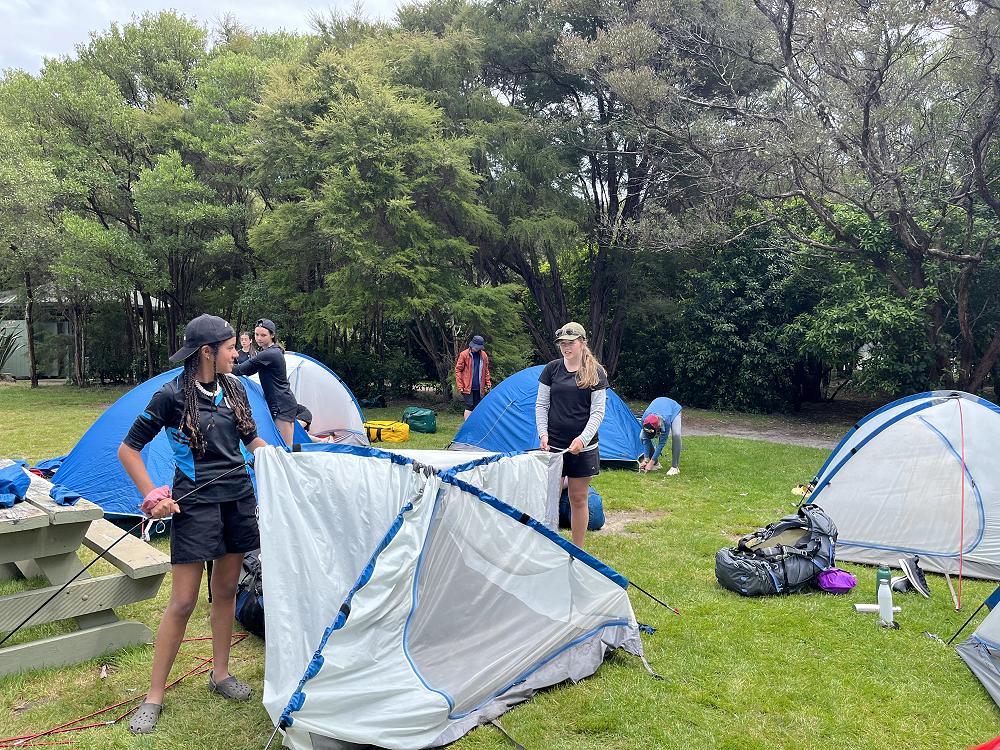
The next morning we piled into our vans and drove down the scenic backroads. We visited a tapu natural spring at Riuwaka Resurgence and collected some cleansing water. After learning a little about the history of the area, we continued on to another temporary campsite. We set up our tents and the first cook crew prepared lunch. We all sang waiata and did karakia.
We all wandered down to the cove to learn how to operate our waka. We were split into groups on each waka and we set out to practise our teamwork on the water.
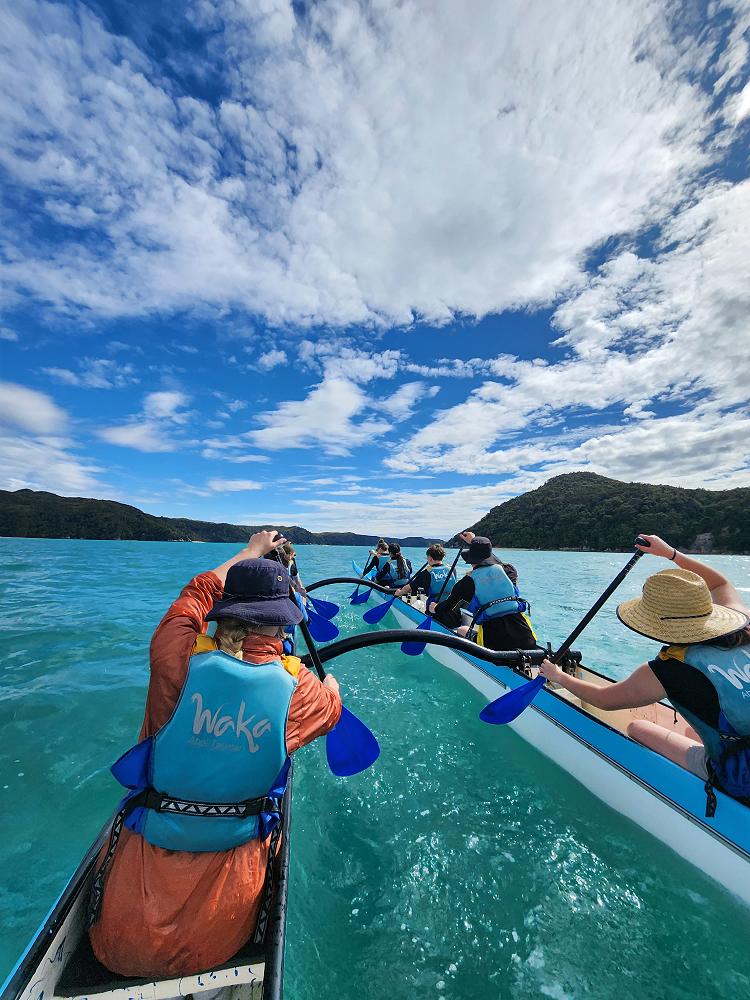
The views were gorgeous and we stopped at different points along the way to listen to stories of the places we were visiting. We also learnt a special haka to announce our arrival for each destination we stopped at. Once paddling back into the cove, we raced between wakas (The Blue Lightning won) and then some of us jumped off the side of the wakas and swam around. The water was beautiful, but soon most of us were freezing and demanding hot showers! After everybody had showered and dressed in dry, warm clothing, dinner was prepared by the first cook crew.
After dinner, as everybody was settling down, most of us were planning in advance for the hurried packing that the next morning would bring. We had another early start and the teachers urged us to rest up. Did we listen though? Depends who you ask.
Up at dawn, we all quickly packed everything into the vans and rushed down to the beach, where Matua Tewera was awaiting us. Together we pulled down the waka, and with the rising sun on our backs, we set a rhythm to start our journey.
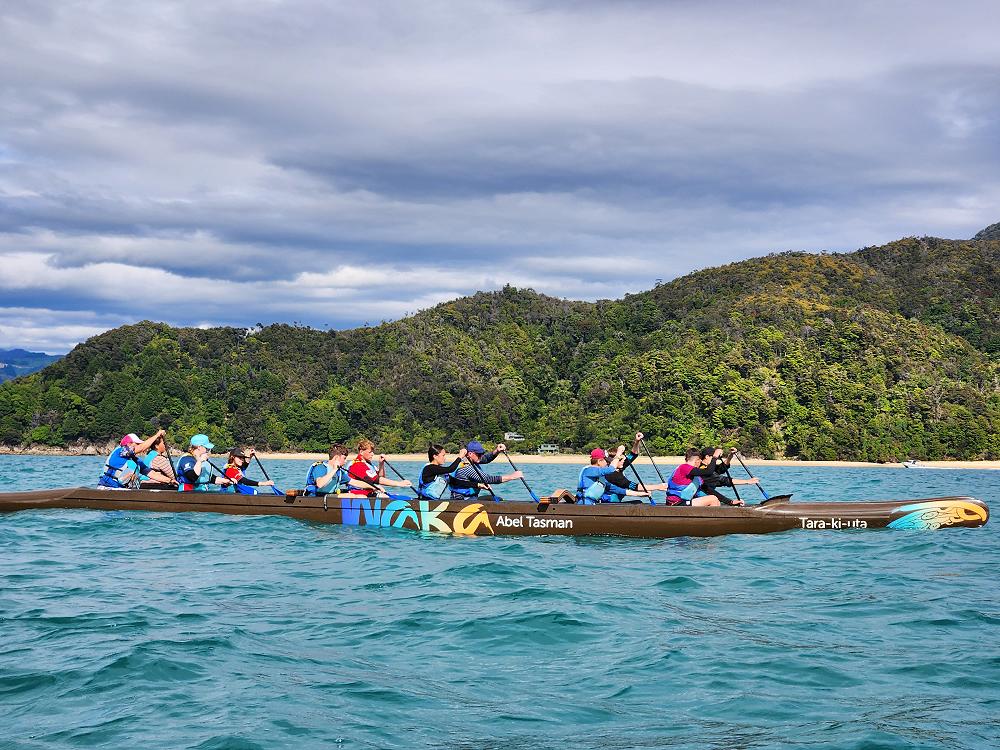
Between waka, the speed and rhythm varied. This didn’t mean that there was any less effort nor teamwork, however, rather that everybody was learning at their own pace. However, each waka was powering forward and soon we stopped at Motuareronui to listen to the bird life, as well as carbo load for the upcoming Mad Mile. The Mad Mile was an infamous stretch of open coastline we needed to travel over in order to reach Anchorage.
Working as one we paddled steadily into the mouth of Anchorage Bay. Elated but relieved we paused before having a short but competitive race (Blue Lightning won again). After announcing our arrival we pulled the wakas high upon the golden sands and unloaded all of our gear.
Lunch was served and prepared by the second cook crew and after a short break, we set up our “Smurf City” also known as our village of bright blue tents. The instructors informed us we would be going for a walk up the scenic tracks throughout the hills surrounding us. A lot of us were begging for a swim but we were reassured that we would enjoy the walk.
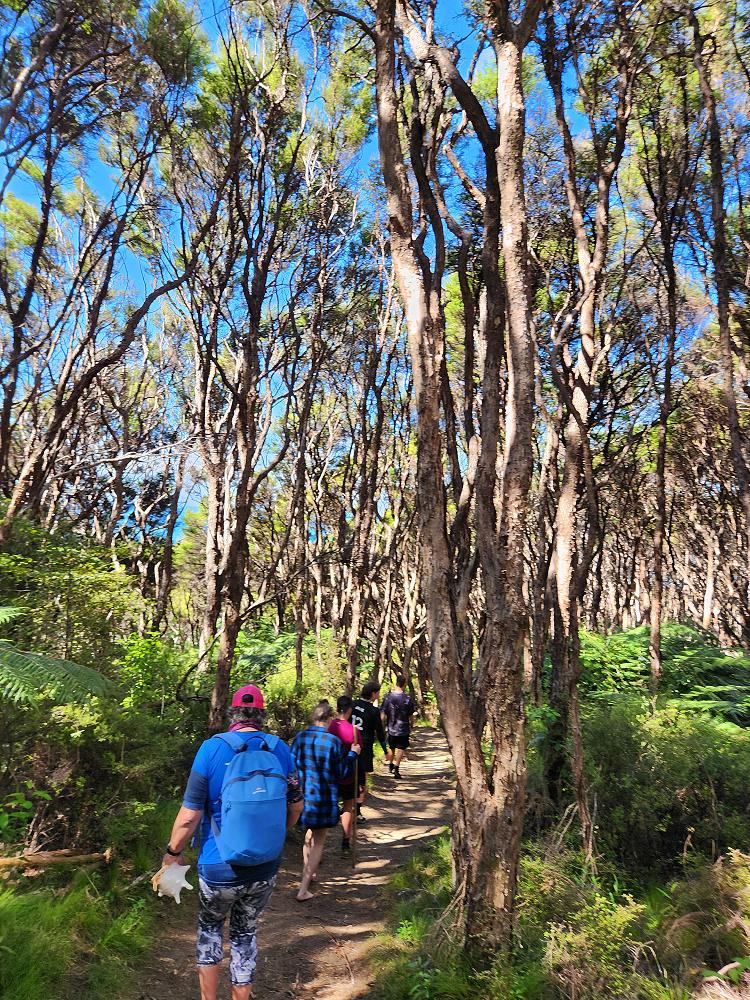
Hiking through the almost…poetic native plantings, we learned more and more about the history of Anchorage. We listen to stories of war, kinsmanship and giant salmon. Then we played an ambush game called “kill the Princess”.
After rushing back down to the beach, half of us hurriedly changed into togs. We all either dove in or wadded around cautiously. The water was refreshing and clear, but soon we had to get out and get ready to learn mau rākau.
Matua taught us the customs around mau rākau and then we were put into three lines. Little by little we adjusted to each move, and soon we were comfortable running the whole set.
That night we repeated the process of karakia and waiata. We settled into our new tents and soon we all fell into a much-needed slumber.
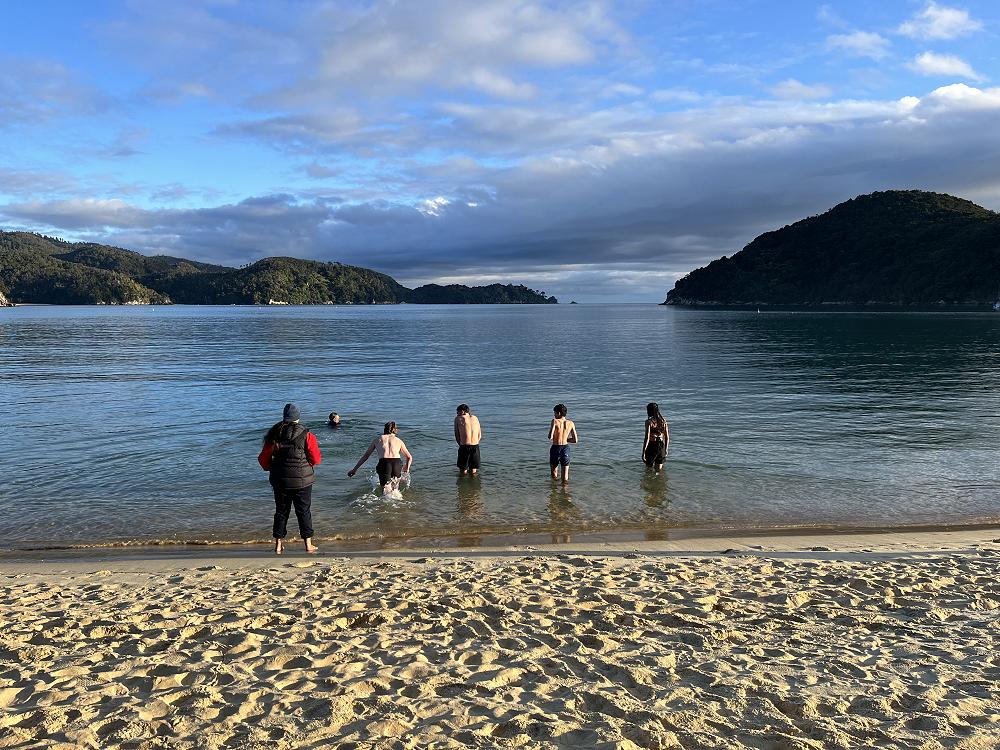
The next morning, at the crack of dawn, the instructors woke us with a karakia. The previous evening, Whaea Linda had challenged Sonny Bill to stay in his tent until 7 am and promised she would go on a morning swim with us. Sonny managed to be good to his word, and the next morning a small group of us braved the chilly water. As it turned out, Whaea and Mele were the only ones who could stand the cold and enjoy the crisp waves the longest. The rest of the boys turned tail after a few short moments and hurried to get warm.
After breakfast, we first listened to the farthest sound, a calming exercise where we separated ourselves from everybody and we all felt independent. Then we all hopped into the waka. Powering across the still water, we pulled into a small secluded cove. Once there we lined up and practised our mau rākau. Once we were performing up to the instructor’s standards, we were allowed to explore. The air had a slight chill but Sonny and Jake decided to collect some kai moana off the rocks. They swam out and soon got completely sidetracked by some Kina.
Soon Mele and then Ariā dove in after them and collected muscles. Once the bag was full it was time to go. After some shenanigans, everybody piled back into the wakas.
Back at camp we ate lunch and drank warm drinks. The instructors introduced us to a team-building exercise using a skipping rope. We had to figure out how to use other people’s strengths and make up for each other's mistakes. We never got to the set goal of 40 points but we certainly were closer afterwards.
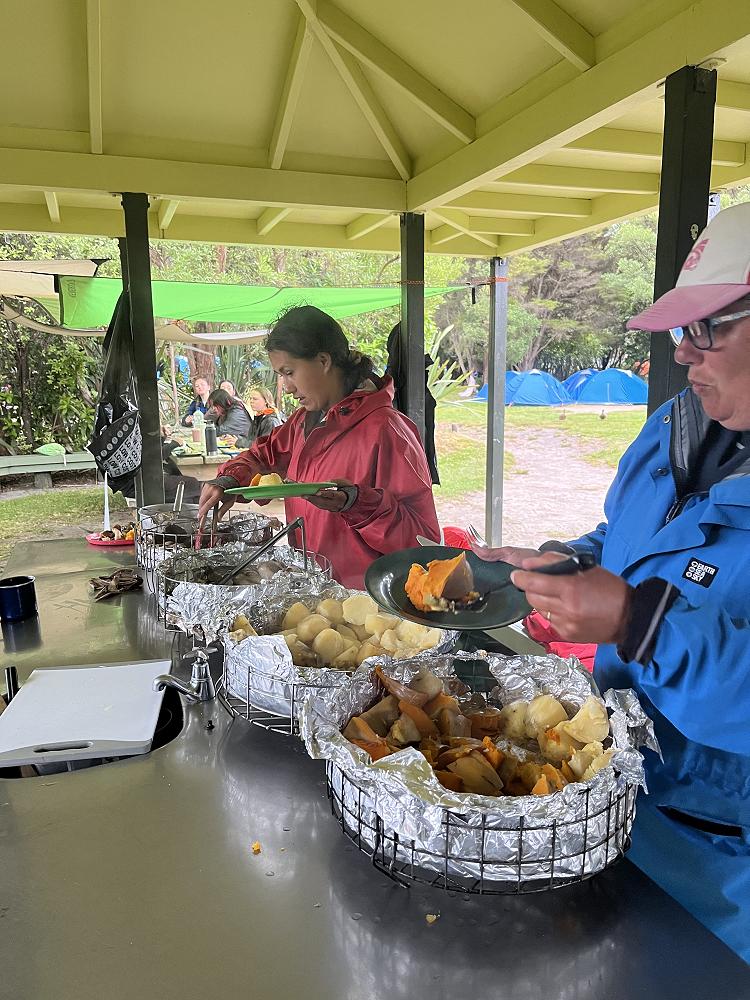
Down on the beach, we began a game called “Rob the Marae”. Two teams were set and laughter and makeshift war cries echoed throughout the campsite. The rain was pelting down at this point and eventually, we resigned to our tents.
Later on we played games with the other school camped out. Mackenzie College then received a mau rākau demo and a haka, which they returned with their haka.
The next morning was full of high energy and tension as we packed and left an hour early, hitting the water, watching the sky. Bad weather was approaching and we wanted to return before then. The Mad Mile lived up to its name this time around, and teamwork was essential. We never let each other down however, and by the time we finally pulled into the shore, we were all laughing about the waves that were so strong they lapped over the waka sides, and the currents that slowed us down. That last run really tested us, but we stood our ground, the powerhouses shovelling water out, the heartbeat keeping a strong pace, and the steering team guiding us towards home.
After warm showers and even warmer butter chicken, we said our goodbyes. It was an emotional goodbye, we had shared so much, but the instructors assured us many more opportunities to come and see them and their company in the near future.
Back in the vans we battled through the rain, stopping ever so often. We came as two different year groups, two different peoples, and we all left as one. Once at McDonalds we pigged out on all the junk food we could afford, and people texted and contacted everybody they could.
Arriving in the dark, we collected our bags and found our parents.
The trip was over but the memories and experiences we shared changed all of us.
Written by Mele
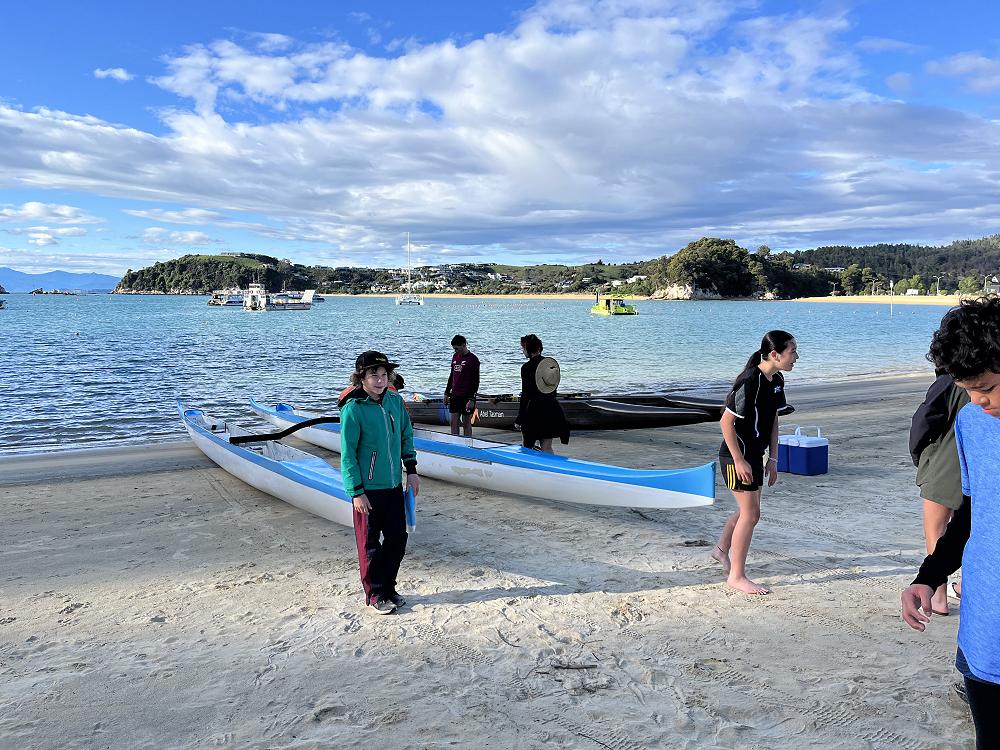
Gallery
